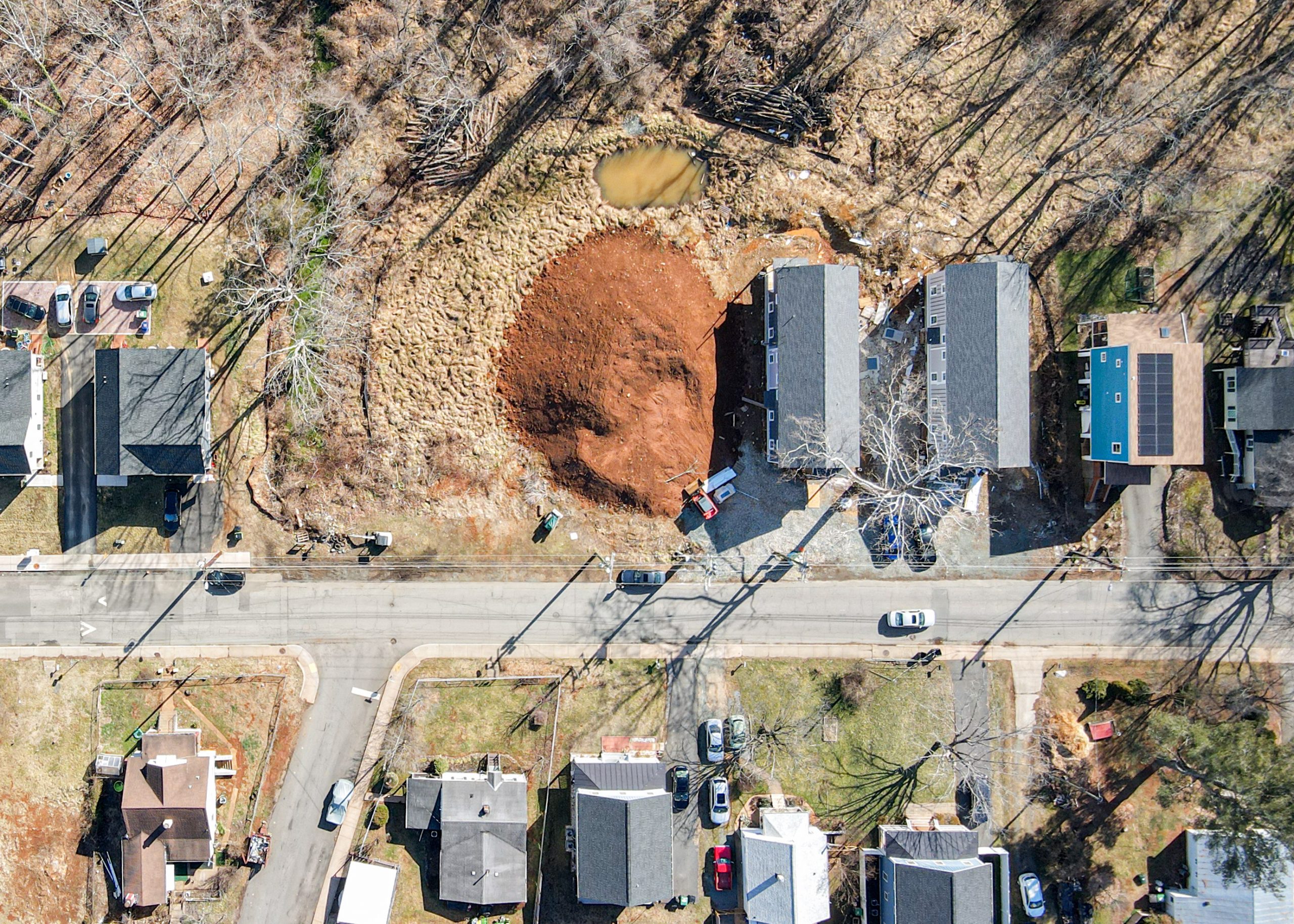By Maryann Xue
As Charlottesville continues to search for new ways to address its housing shortage, City Council voted unanimously Monday to approve rezoning for a vacant lot on Nassau Street. The city moved the lot from the R-2U designation, two-family residential, to R-3, the medium intensity residential category.
“The purpose of the rezoning is to be able to build more, smaller units, rather than fewer, larger units,” says Nicole Scro, one of the project developers. “Larger units…result in higher rents, since they are more costly to build. The smaller the units, the less expensive the construction costs, and therefore the lower the rents.”
In December, the Charlottesville Planning Commission unanimously recommended the parcel for rezoning, stating that the proposal aligned with the city’s goals of “engaging in robust and context sensitive urban planning and implementation” and creating “quality housing opportunities for all.”
The project was met with opposition from a certain faction of city residents, however. Mark Kavit—who most recently appeared in C-VILLE in 2020, when he circulated a petition opposing the construction of a 15-unit apartment building geared toward adults with developmental disabilities in Belmont—spoke up against the Nassau Street rezoning.
Kavit says the street is a floodplain, and that development in that area is therefore risky. “If you put people who are economically challenged or don’t have a lot of income into these areas that are, you know, hazardous, they don’t have the ability to survive or take care of their needs,” he says.
During the council meeting, city engineer Jack Dawson gave a presentation, at the request of the council, on the city’s role in floodplain management and a general assessment of the risk of developing in the floodplain.
Dawson explained that at the last council meeting, incorrect floodplain data had been shared with the public. Kavit and others raised concerns that, based on the map shown at the time, the floodplain goes across the street, but Dawson clarified this was not the case and showed the correct data.
Mayor Lloyd Snook noted that the rezoning process isn’t the procedurally correct time to address the floodplain question anyway. Later, the building will have to pass a site plan inspection. “If we pass the rezoning, it’s not saying ‘oh and by the way we don’t think there’s a floodplain issue,’” Snook said. “What we would be saying is the floodplain issue isn’t an issue at the rezoning stage but it still is a potential issue at the site plan stage.”
According to Scro, part of the rear of the property is currently located in the floodplain, but the property will be elevated such that it will be entirely out of the floodplain by its completion. She also added that the buildings will have concrete foundations to mitigate mold growth.
“I feel very confident about it being safe, and about it being a healthy environment for people to live in,” Scro told City Council on Monday. “We want to build something that not only is safe and healthy but also reaches lower price points.”






